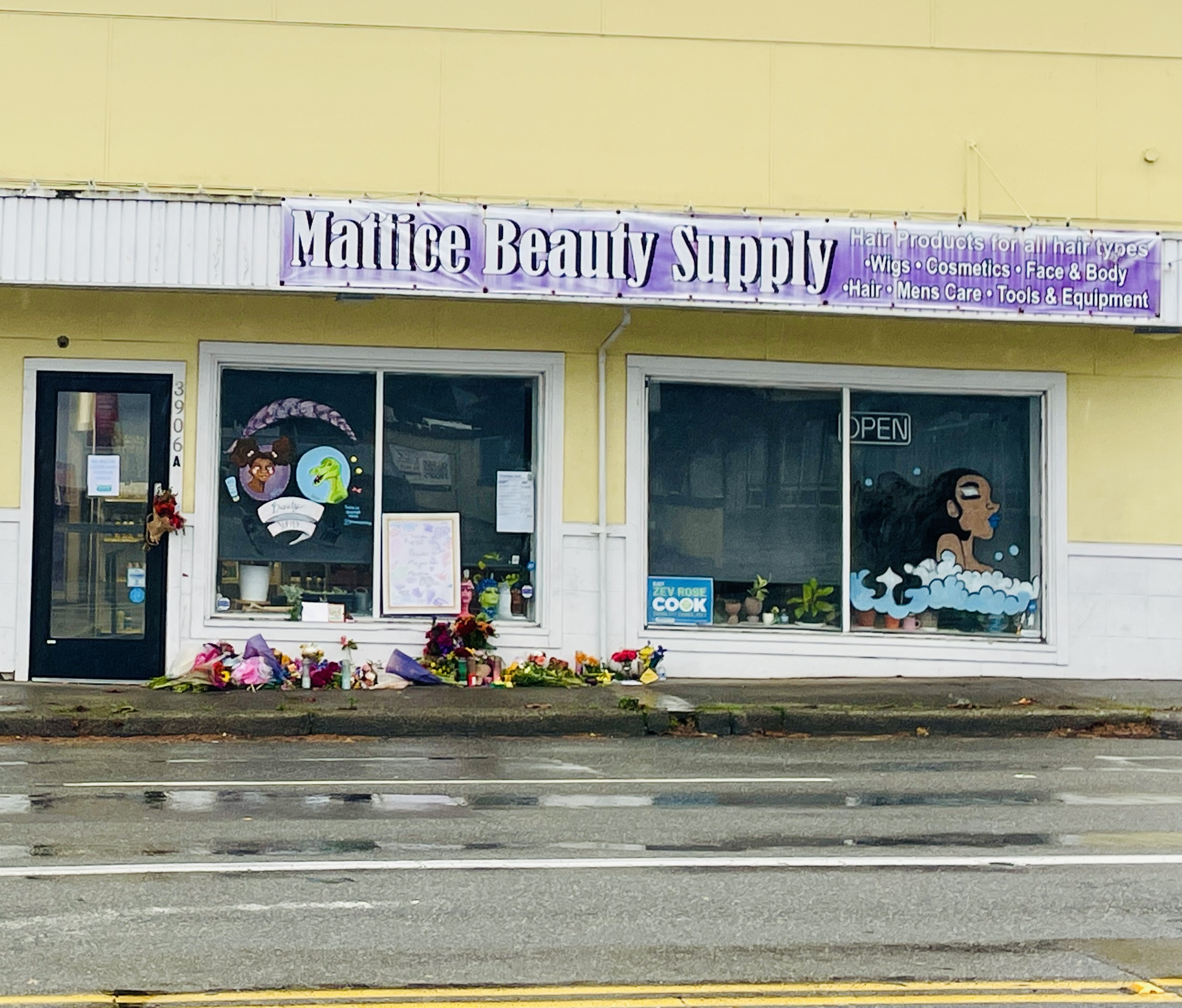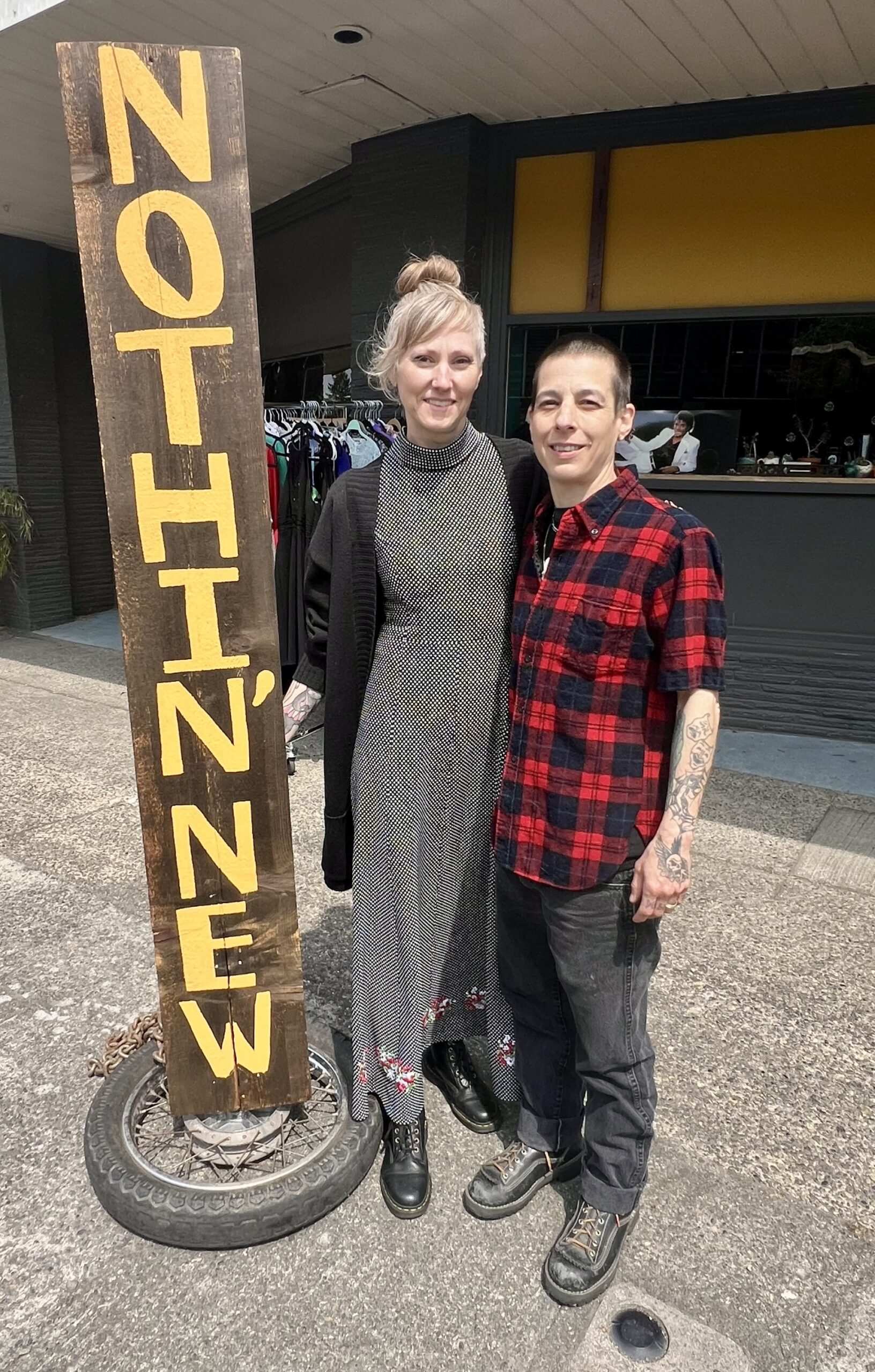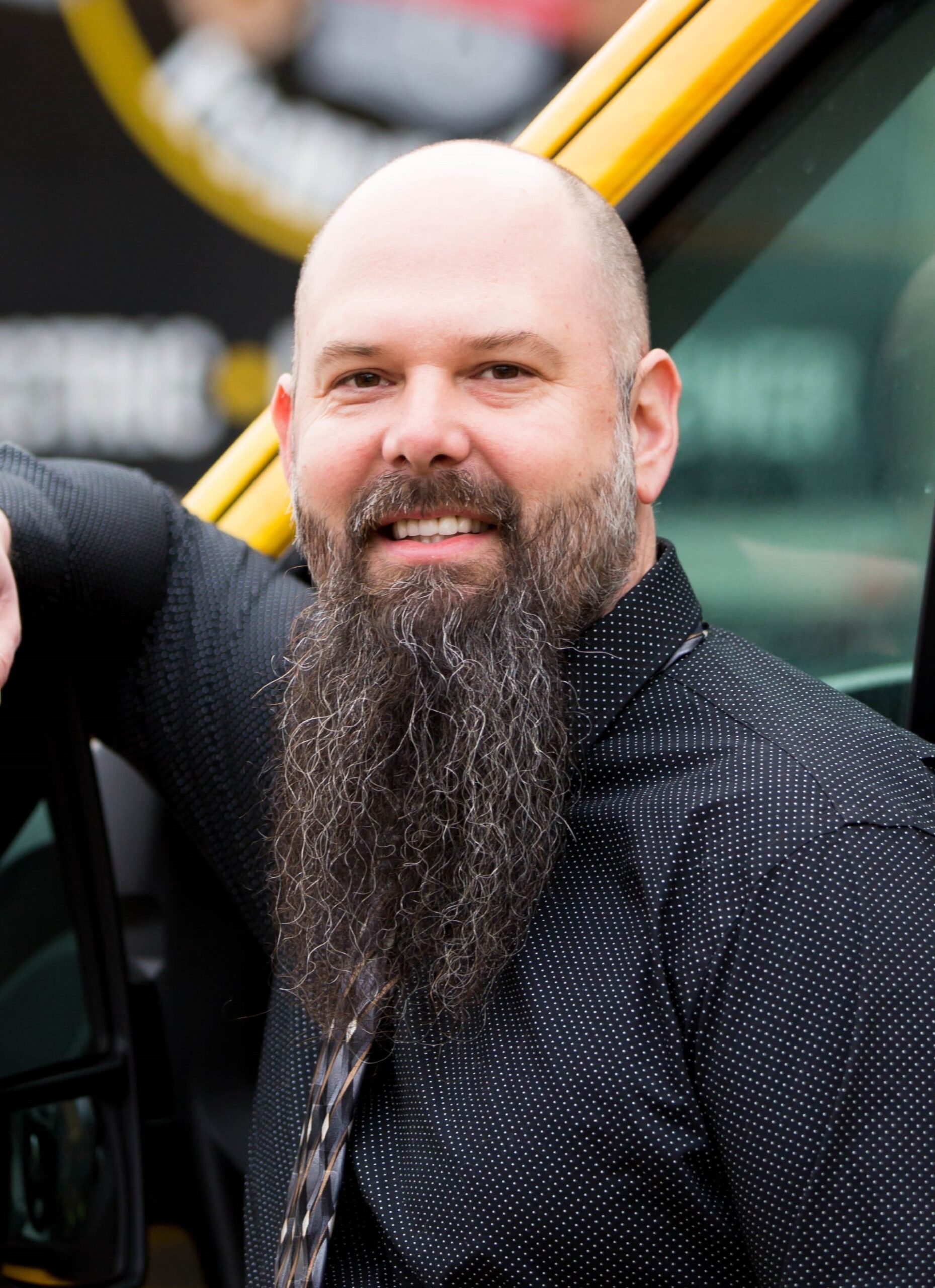BY DANA HILL for WEEKLY VOLCANO 11/21/25 |
The day I spent with Mattice Hoyt has settled into my memory like autumn leaves outside her yellow-painted beauty supply store: colorful and fleeting, exactly like her and the relationship we never fully developed.
A mix of shero, bullhorn, and a gospel choir, she was known as the unofficial mayor of Tacoma. Blunt, crass, and brilliant, she loved a cuss word the way scholars love commas.
We met in 2022. I had spoken at a women’s empowerment event, and afterward she introduced herself. “I am the Mattice of Mattice Beauty Supply,” she said proudly. We enjoyed wine and conversation, and when I asked how business was, she let out a loud laugh unassociated with feminine charm and said, “Well, it ain’t dead.”
Having learned I was Mama Doll, the marketing girl who had helped The Black Dolls, Barbie, and Ronald McDonald, she cut straight to the point. “You gon’ help me or nah?” I told her yes, and for free. Drafted into service by a woman who mixed humor, hurricane, and holy conviction, I set a date with her.
When I walked into her shop, I said, “Doll, it is cold in here, and where is the music?” She shot back, “Doll, I am the warmth and the music.” And then she let me in. We talked through her challenges, her dreams, and her hope that her store could become a hub for all races and a home for community. She toured me through every aisle.
We debated the classic entrepreneur riddle: more money first or more customers first. When I told her that attracting customers without enough inventory was pointless, she paused and said, “Wow. So simple. I needed that reminder.” I told her not to beat herself up. “Entrepreneurship is hard. We wear all the hats. It is easy to forget simple things.”
Between the business talk, she spilled some T-Town tea and told me of her frustrations. “You are new. You will learn. Tacoma is gossipy. Like high school with utility bills. And cliquish. Grown folks form groups like they are picking teams for dodgeball. And do not get me started on the ones who do not vote. Loud as hell about problems they refuse to fix with a vote.” Then, with the seriousness of a judge handing down a sentence, she warned me about the city’s cliques, queen bees, and ring-kissing expectations. “Beware of certain people. And do not kiss the ring.” I assured her I would not. That is not my style.
She also had strong words about Tacoma’s civic leadership. “Half of them ill-prepared for homelessness and clueless about crime.” Her critiques were not cruel; they were surgical. She did not hate Tacoma. She loved it. She was disappointed in it, like a teacher frustrated with brilliant students who will not turn in their homework. She did not say it, but I felt that she believed the powers that be were governing Tacoma like they found it on Craigslist.
At one point she let her guard all the way down and told me about her cancer journey and losing her legs. She talked about her better halves, family and friends, and the day she lost her bottom half. I was surprised at how deeply intimate she allowed our conversation to flow. We cried. A disabled woman who was anything but handicapped, I learned that day that Mattice Hoyt was emotionally tired, and yet she still had to keep going without her legs. She spoke with a strength that made my chest ache. She was disabled but not handicapped, emotionally tired but still rising.
Her beauty supply store sat on a corner often ignored except by the people who knew her and loved her. She talked about the white women who looked into her store from their car windows at the red light, wondering if they could shop there. “White women sit out there and peer in like they tryna decide if I sell tanning creams in here,” she snorted. “Girl, just come in. How many times you gon’ drive by and stare?”
She told me Korean wholesalers kept parts of their catalogs in Korean so Black owners could not access what they needed. But what hurt her most, she said, was not the wholesalers. It was watching Black shoppers bypass her store for places that do not even want them there. Her voice cracked, not from weakness but from the exhaustion of being right.
Inside, her store smelled like incense and unfiltered truth. But business was hard. Pressing against the walls like the Tacoma fog, you could see it from the lack of inventory.
The whole day felt like a magic trick. One moment we were discussing lace-front wigs, the next she was describing political failings.
And woven between her rants and roars were moments of sisterhood: a disabled woman who refused to be reduced, a business owner fighting two economies, one financial and one racial.
“Mattice,” I said gently, “the hardest thing in marketing is changing people’s minds. You keep trying to convince everyone this store is for all people. If someone who has never been in your store has decided the store is not for them, do not waste your energy. Serve the ones who already believe it is.”
By closing time, we had a plan: more product, more community, more clarity. Continue to be who she was, not who others demanded.
After providing her marketing to-do list, we lost touch. She stopped replying, and I did not take it personally. Some souls are too busy fighting battles the rest of us do not see.
Gone. The woman who laughed loudly. Cussed proudly. And loved deeply in a town where not everyone loved her back. Gone. Without public explanation, Tacoma learned that Mattice passed away.
Some feared her volume, her truth, her unwillingness to smooth edges that were never meant to be sanded. But many, more than she ever realized, admired the way she carried our community.
Mattice was a courageous soul, a municipal menace, unapologetically Black, unapologetically Tacoma. Tacoma lost a warrior, a watchdog, a woman who fought with her voice, a woman who told the truth even when it damaged her popularity, a woman who held culture like a torch. Because even when she could not stand, she stood for something.
As she often said, with that laugh that rattled, “For the culture.”
Writer Dana Hill is the founder of The Black Doll Affair and the B&W Doll Party of Tacoma, two movements dedicated to girl power, inclusion, and community. Learn more at BlackDollAffair.com.








